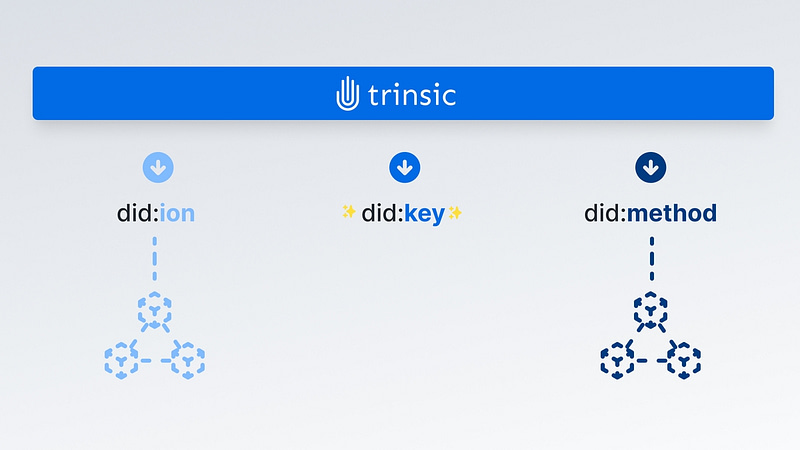Do You Need a Blockchain to Build Your IDtech Product?

Trinsic’s next generation platform delivers decentralized identity infrastructure that is not tied to a specific ledger. In the world of decentralized identity, this may seem like a surprise, but it’s actually a huge win for product developers. This post will dig into a few reasons why Trinsic went ledger-less by default. Adoption of Decentralized Identity Is […]
Trinsic Basics: What Is a Trust Registry?

The rules, or governance, of a verifiable credential ecosystem dictate which participants are allowed in a given ecosystem and therefore, who can be trusted. With Trinsic’s Trust Registry Service, ecosystem governance is implemented and configured directly through the Trinsic SDK. This means our customers do not have to build a unique technical solution to solve […]
Trinsic Basics: The Verifiable Credentials Model

At the core of every self-sovereign identity (SSI) use case is what we call the verifiable credentials model. This simple yet effective model helps conceptualize how verifiable credentials are exchanged between people and organizations. In the SSI community, you will often hear the verifiable credentials model referred to as the “Trust Triangle”. Often called the […]
Trinsic Basics: Open Source SSI Codebases

In a previous post, we discussed Trinsic’s commitment to making sure our platform is based on the most recent self-sovereign identity (SSI) standards. Because of that commitment, solutions built with Trinsic will always be interoperable and untethered from vendor lock-in. We implement those standards through open source codebases which power everything we do at Trinsic. […]
Trinsic Basics: What Are SSI Standards?

Standards are an important part of the Trinsic platform. Our vision is that people everywhere will have a digital identity that’s as legitimate as their real-world identity. In the real world, standards are an important part of identity. Why do you think that driver’s licenses from different states contain the same information? Or transcripts from […]
Trinsic Basics: The Three Models of Digital Identity

Digital identity has advanced over time, most recently culminating in self-sovereign identity (SSI). In this Trinsic Basics post, we are going to briefly cover the different models of digital identity and how SSI is the next step in the digital identity evolution. The content in this post is inspired by a blog post written by […]
Trinsic Basics: What Are Decentralized Identifiers (DIDs)?

“Identifiers” are how you are identified as a unique person and recognized as that same unique person over time. With other people, your primary identifier is your face. With organizations, it might be a student ID, social security number, or driver’s license number. Online, it might be a username, phone number, or email address. […]
Trinsic Basics: What Are SSI Digital Wallets?

The easiest way to explain self-sovereign identity (SSI) is to pull out an item that people carry on a daily basis—a wallet.¹ It’s strange to use a leather pouch to explain such a complex, nascent technology as SSI, but it works! And it works because most of the magic of SSI happens within and between […]
Trinsic Basics: What Are Verifiable Credentials?

Trinsic makes verifiable credentials and self-sovereign identity (SSI) easy for developers to implement, so it is only fair we make it easy to conceptualize as well! The term “verifiable credentials” can seem a bit technical and overwhelming at first glance. But in reality, verifiable credentials are simpler than you think. Start with what you know […]
Trinsic Basics: What Are Zero-Knowledge Proofs?

Last week, the Decentralized Identity Foundation announced work on interoperable zero-knowledge proof schemes that Trinsic participated in. Since then, we’ve had some folks ask us, “What are zero-knowledge proofs?” It’s a great subject for our first Trinsic Basics post—a series of blog posts geared toward educating people who are new to the community about the […]
